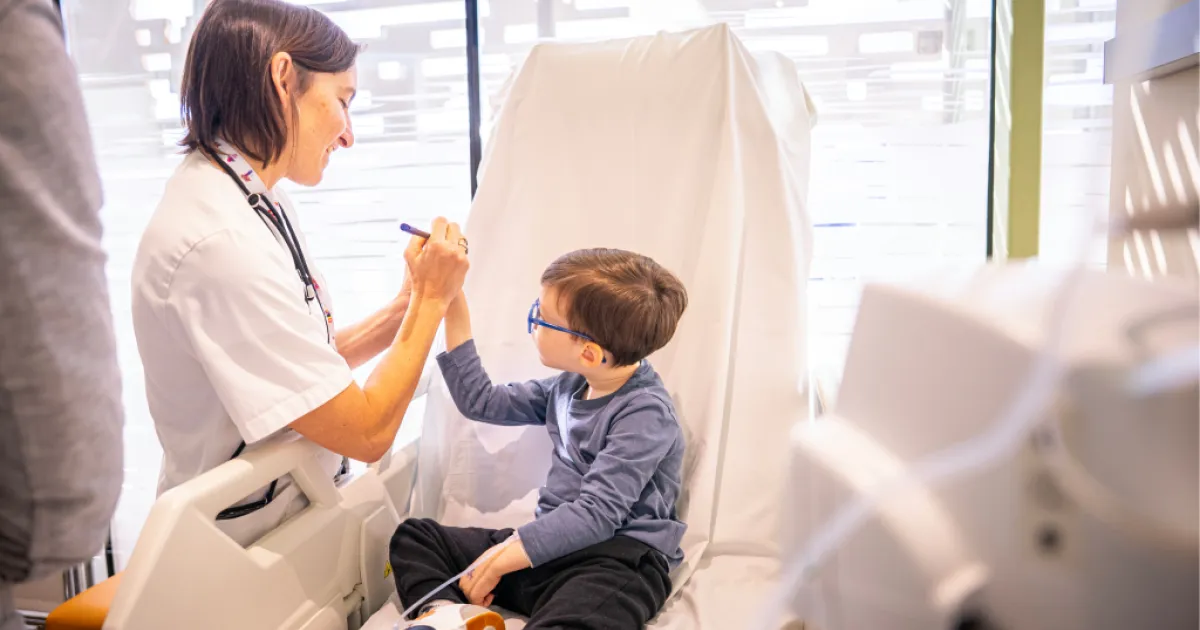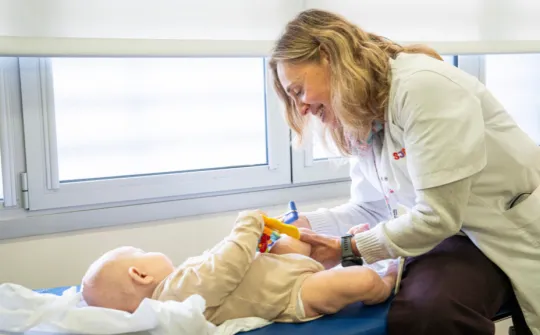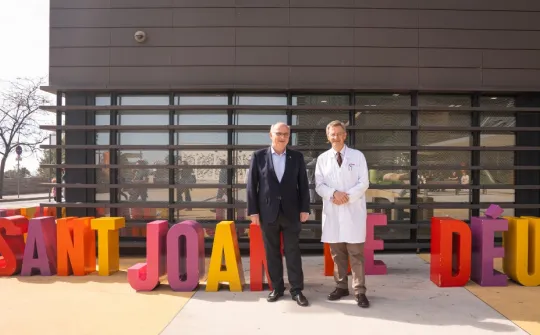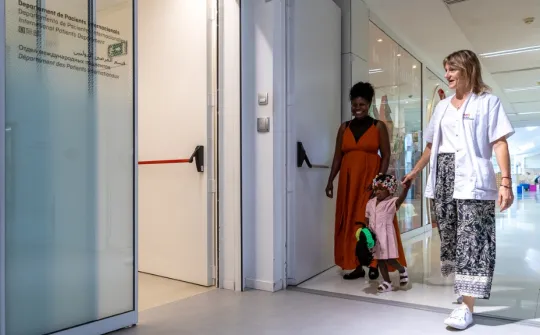‘We are the largest Pediatric Clinical Trials Department in Spain, and the second-largest in Europe’

At the SJD Clinical Research Unit, over 220 clinical trials are taking place, covering around 30 therapeutic areas and involving more than 75 researchers.
The SJD Barcelona Children's Hospital is growing and evolving into a complex pediatric medicine specialist, with a particular focus on rare diseases and pediatric cancer, among others. As such, the hospital's various units and departments are also growing and changing to remain aligned with the hospital's path. ‘We are the largest Pediatric Clinical Trials Department in Spain and, according to recent figures in European records, the second-largest in Europe in terms of volume of active pediatric clinical trials,’ says Joana Claverol, Head of the Clinical Research Unit at the SJD Barcelona Children's Hospital.
According to Claverol, the unit currently has 220 active clinical trials for medications and another 15 trials for medical devices. Furthermore, they cover more than 30 different therapeutic areas and involve over 75 researchers.
The Neurology Department is the department with the most active trials. There are currently 80 active trials between the two large subsections of this specialism, focusing on neuromuscular diseases and non-muscular neurological diseases. The Oncology Department is currently running 60 trials. ‘Many of these researchers come from academia, not from the medical sector, because pediatric cancer is not in their area of interest,’ highlights Claverol.
Rheumatology, Immunology and Infectious Diseases are other departments with clinical trials currently in development. The Head of the Clinical Research Unit stresses that, ‘although the diseases can have varying degrees of severity, many of them are chronic in nature, meaning new treatments can have a real impact on the quality of life of our patients.’
Marta Cubells, the Clinical Research Unit Care Coordinator, tells us that the interaction between so many hospital units is, for the most part, down to increased detection rates of rare diseases. ‘Patients come to us with diseases that have no treatment, or if they do, the treatment hasn't worked. They are looking for new options, which is what we are working on finding.'
How does the Unit work?
A clinical trial is an experimental research project to, for example, test a new molecule that could potentially cure a disease, or improve the symptoms of a chronic illness, having a real impact on our patients’ lives. To do this, staff working in the Research Unit study and monitor the progress of patients being treated with new medication or medical device.
As well as looking for new treatments for patients, the Research Unit also benefits staff. The SJD Barcelona Children's Hospital brings in patients, which helps our researchers when they wish to conduct trials. We have a team of over 50 dedicated staff members who work day-in, day-out on trials and with families.
Cubells also highlights the importance of the Trial Coordinator figure. ‘This person is in charge of the project, and they act as the link between the Principal Investigator, the patient and their family, and the other hospital departments and areas that are involved in the trial.’ That makes it a fundamental role, as, in the words of the Unit's Care Coordinator, ’a clinical trial protocol is very regimented’, as every task must be completed at a very specific point and within a very tight window of opportunity. When our patient arrives, everyone involved has to be properly coordinated.’
The SJD Barcelona Children's Hospital has around 35 different Coordinators who make up the various investigative teams conducting research projects.
A fourteen-year journey
In response to a lack of clinical trials focusing solely on pediatric patients—meaning no data from adult trials were extrapolated to pediatric patients—, in 2007, the European Commission decided to regulate these trials. That is what led the SJD Barcelona Children's Hospital to create the Clinical Research Unit in 2011, and since then, it has not stopped growing. ‘We started out as just three people, and now we are a 50-person strong team working in the unit,’ notes Joana Claverol.
The Head of the Unit also notes that the hospital gives its full support to research work being done at the hospital, with projects such as the Únicas project, which seeks to find new diagnoses and therapies for rare diseases, or through the work of the SJD Research Institute.
The Unit's growth comes with several challenges for staff, and proper management of the complexity of each trial is vital. On that note, Cubells stresses that, ‘we must keep making progress with gene and cell therapies using new technology. This field demands we innovate and adapt to be able to give better and better results.’ Staff also highlight the difficulties involved in giving the families coming from abroad everything they need.
‘To mention a few of our achievements, I would say that there are a few patients who would not be here today if it were not for their involvement in a clinical trial. It is a real pleasure being able to see first-hand how the usual story of certain—quite devastating—diseases has changed thanks to these revolutionary treatments,’ concludes Joana Claverol.




